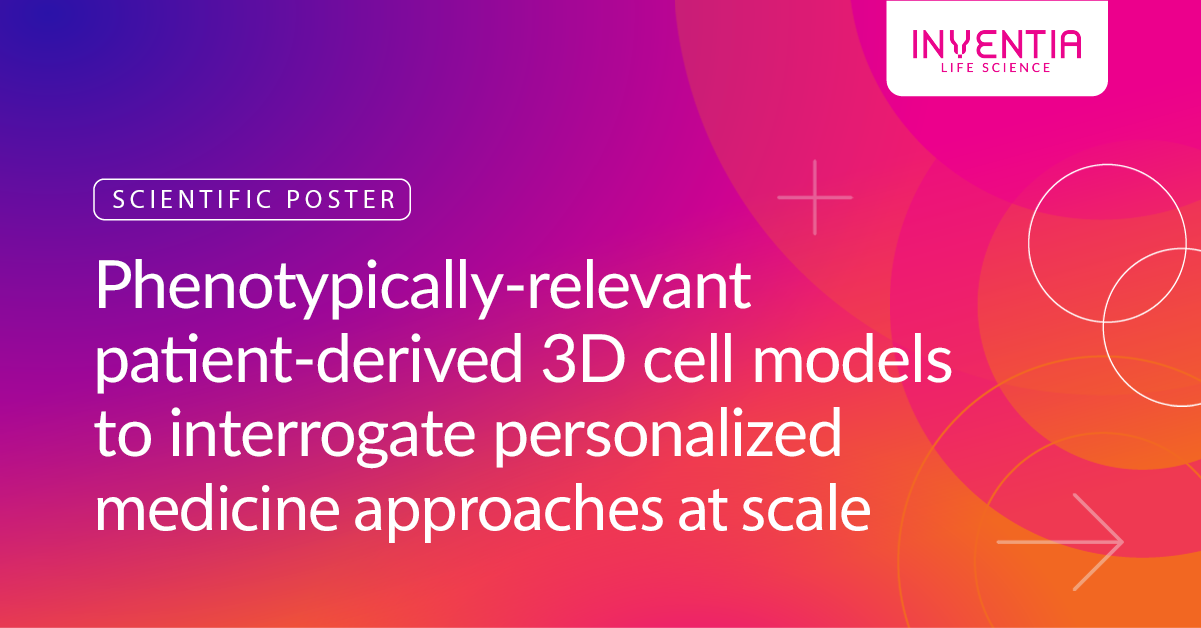
Phenotypically-relevant patient-derived 3D cell models to interrogate personalized medicine approaches at scale
Presented at American Association for Cancer Research (AACR) Conference 2025
Thomas Grundy1*, Peilin Tian2, Joanna Wasielewska1, Christine Yee1, Tania Fowke1, Sean Porazinski1
Abstract
The complexity and heterogeneity of cancers both intra- and inter-patient have led to the precision medicine paradigm of cancer therapy where treatment is personalized to the individual patient. Recent clinical trials such as the I-PREDICT study [1] have underscored the benefits of approaches matching combination therapies to the patient’s molecular alterations, leading to improved disease control and survival rates.
Tumoroids are patient-derived cancer cells that grow as 3D self-organized, multicellular organoids that maintain key characteristics of the patient tumor of origin including molecular features such as genotype and gene expression, and biological behaviors. Whilst these models serve as valuable tools for studying tumor biology and responses of patient-derived cells to various anti-cancer therapies, the establishment and maintenance of tumoroids has historically been difficult and labor intensive, limiting more widespread use.
Here, we utilize the Inventia RASTRUM™ platform and OncoPro™ colorectal cancer (CRC) Tumoroid Cell Lines (ThermoFisher Scientific [2]) to easily create plug and play patient-derived 3D cell models based on synthetic PEG-based hydrogel matrices, which were tuned to mimic the tissue stiffness and ECM composition of CRC tumors. We used this workflow to evaluate how these 3D models maintain the clinicopathological features of patient-derived tumoroid cells, as well as molecular features and cellular signaling native to the tumor and its microenvironment. We further demonstrate the utility of this approach for throughput drug screening and predicting personalized therapy responses.
Overall, our approach provides a scalable framework for evaluating precision medicine approaches using clinically-relevant patient-derived tumoroids. Future work will focus on the development of processes to support direct dissociation and generation of patient-derived models from biopsies from a variety of cancer types and larger scale utility of the RASTRUM platform in workflows that could be leveraged to inform treatment decision making.
References
1. Sicklick JK et al. Molecular profiling of cancer patients enables personalized combination therapy: the I-PREDICT study. Nat Med. 2019 May;25(5):744-750.
2. Paul, C.D. et al. Long-term maintenance of patient-specific characteristics in tumoroids from six cancer indications. Scientific Reports 2025, 15(1):3933.